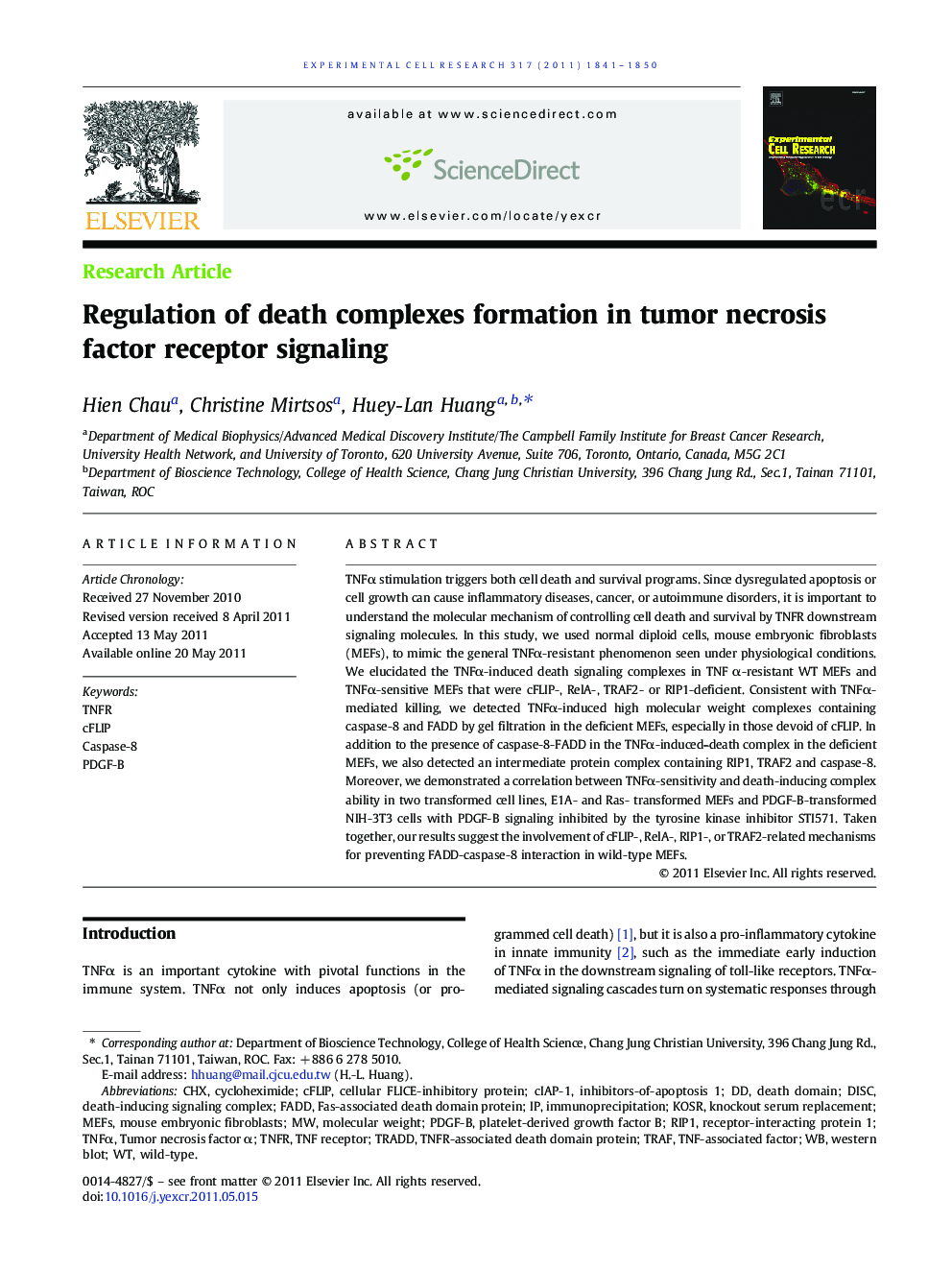| Article ID | Journal | Published Year | Pages | File Type |
|---|---|---|---|---|
| 2130821 | Experimental Cell Research | 2011 | 10 Pages |
TNFα stimulation triggers both cell death and survival programs. Since dysregulated apoptosis or cell growth can cause inflammatory diseases, cancer, or autoimmune disorders, it is important to understand the molecular mechanism of controlling cell death and survival by TNFR downstream signaling molecules. In this study, we used normal diploid cells, mouse embryonic fibroblasts (MEFs), to mimic the general TNFα-resistant phenomenon seen under physiological conditions. We elucidated the TNFα-induced death signaling complexes in TNF α-resistant WT MEFs and TNFα-sensitive MEFs that were cFLIP-, RelA-, TRAF2- or RIP1-deficient. Consistent with TNFα-mediated killing, we detected TNFα-induced high molecular weight complexes containing caspase-8 and FADD by gel filtration in the deficient MEFs, especially in those devoid of cFLIP. In addition to the presence of caspase-8-FADD in the TNFα-induced-death complex in the deficient MEFs, we also detected an intermediate protein complex containing RIP1, TRAF2 and caspase-8. Moreover, we demonstrated a correlation between TNFα-sensitivity and death-inducing complex ability in two transformed cell lines, E1A- and Ras- transformed MEFs and PDGF-B-transformed NIH-3T3 cells with PDGF-B signaling inhibited by the tyrosine kinase inhibitor STI571. Taken together, our results suggest the involvement of cFLIP-, RelA-, RIP1-, or TRAF2-related mechanisms for preventing FADD-caspase-8 interaction in wild-type MEFs.
